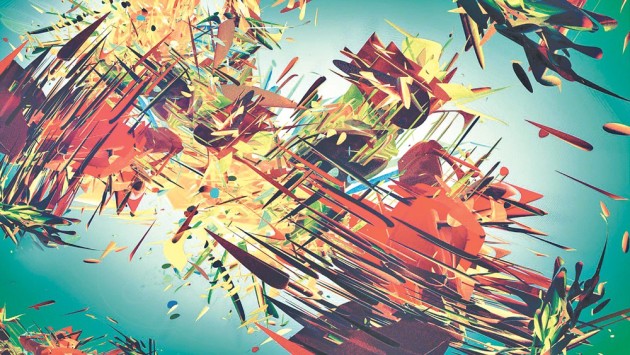Trajectories of culture
 Santosh Gautam (Kathmandu) / April 9: Cultural transformation is all about bringing changes to a culture, whether it be gradual evolution or shifts in cultural ideologies and practices or it be a planned mission for cultural cleansing or uplifting. Culture is not static whether we analyse it in micro, mezzo or macro levels. An individual’s shifts in his thought patterns, belief systems, manners and practices, the changes in group dynamics and culture and the transformation of value system or thinking and working patterns all depict the reflection of culture in the state of flux at different times.
Santosh Gautam (Kathmandu) / April 9: Cultural transformation is all about bringing changes to a culture, whether it be gradual evolution or shifts in cultural ideologies and practices or it be a planned mission for cultural cleansing or uplifting. Culture is not static whether we analyse it in micro, mezzo or macro levels. An individual’s shifts in his thought patterns, belief systems, manners and practices, the changes in group dynamics and culture and the transformation of value system or thinking and working patterns all depict the reflection of culture in the state of flux at different times.
As a shared pattern of behaviour culture binds people with norms, decorum and values and symbolic systems, though postmodern thought system looks for beauty in diversity, celebrates chaos and believes in contextual and linguistic interpretation of realities including cultures. In the book, titled Cultural Transformation: A Discussion, author Pradip Gyawali envisions the construction of a national culture reflecting our true identity.
Recently published by Sajha Prakashan, the book has raised a strong voice against cultural extremism and imperialism and has called out the hypocritical tendency of talking about cosmopolitan culture but remaining extremely unwelcoming and intolerant towards other cultures. The major focus of the writer is on development of broader national culture in the global context through proper management of cultural diversity. In the words of the author, “The issue of identity raised beyond the features of the state and socio cultural structure of the nation will ultimately give rise to social conflict” The book unveils the possibility of the emergence of long lasting dividing lines in societies leading towards the division of the nation and entire humanity. He has asserted that Nepal should not be allowed to be used as an interest station of power centers of the world. When a conflict adopts the form of cultural clash, it becomes long lasting through the sowing of the seeds and nurturing of hatred, retaliation and division. The author has expressed his concerns towards this dimension of cultural conflict and has tried to throw light on the bitter reality of ineffective or slow process of socio-cultural transformation in spite of the long history of social reforms in Nepal. In reality too it can be justified by the existence of ethnic, gender based and class based discrimination, segregation and marginalisation that widely pervades our societies.
In fact the major cultural challenge of present Nepal is maintaining the integrity of culture and at the same time bringing about timely changes so as to ensure that it keeps pace with time. On the one hand, it is necessary to relieve our societies from the grip of superstitious forces, on the other hand, it is equally important to protect our culture from being lost in the global culture in the name of globalisation or the creation of a global village. Political upheavals have brought about changes in our state mechanism, its functioning and governance system but the deep-rooted ill practices of our culture are still the same. Also, a critical transitional condition of generation gap caused due to the fascination of younger generation towards the modern culture and the rigid adherence of older generation on the traditional values has been depicted by the book. Gyawali has successfully brought these issues to the surface for broader and significant national discourse.
Brought to the readers at Rs 250 by Sajha Prakashan, the book is worth reading and worth owning for everyone having interest in Nepali culture. It marks a significant step by a seasoned and successful politician into the field of cultural exploration and excavation. Its simple and down to earth language is a remarkable feature of the book though some of the allusions may be difficult for a novice reader to grasp. The frequent use of rhetorical questions has added to the pedagogical thoughtfulness of the book making the readers delve into deep thoughts about their own cultural assumptions and practices. The book is the author’s version of our culture and its transformation though it possesses a high degree of verisimilitude. The author has also tried to analyse our culture in its various complexities and diversities making the book an illuminating piece of analysis. The author has separated different threads of our culture and has invited the readers to reweave them. The author has proved himself a vibrant scientist of our culture, a scholar with unquenched thirst for knowledge and a promising student delving into the different explored and unexplored facets of our culture. Source: The Kathmandu Post
